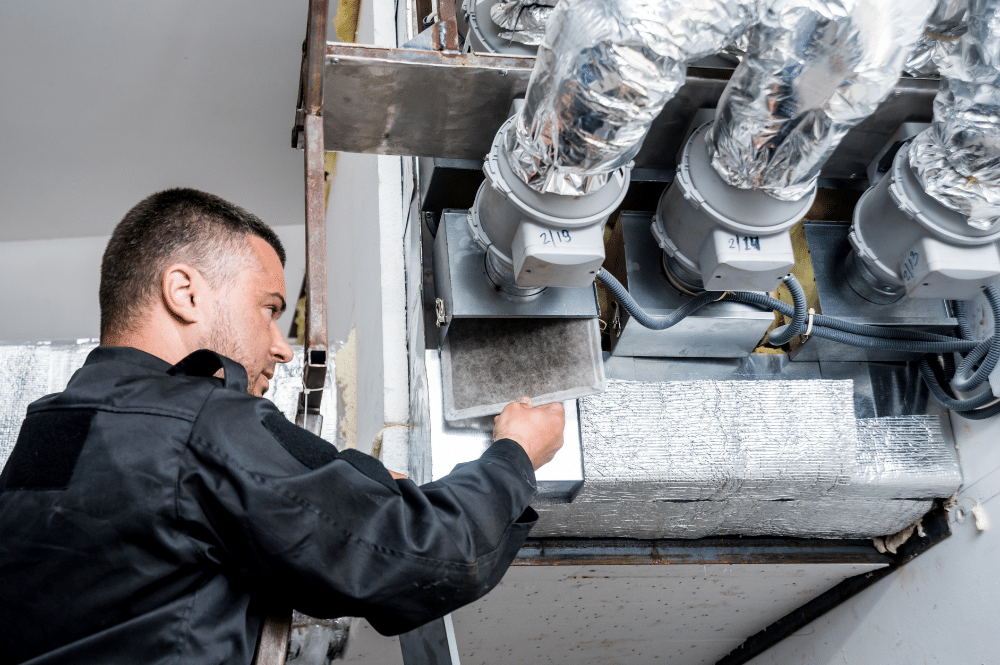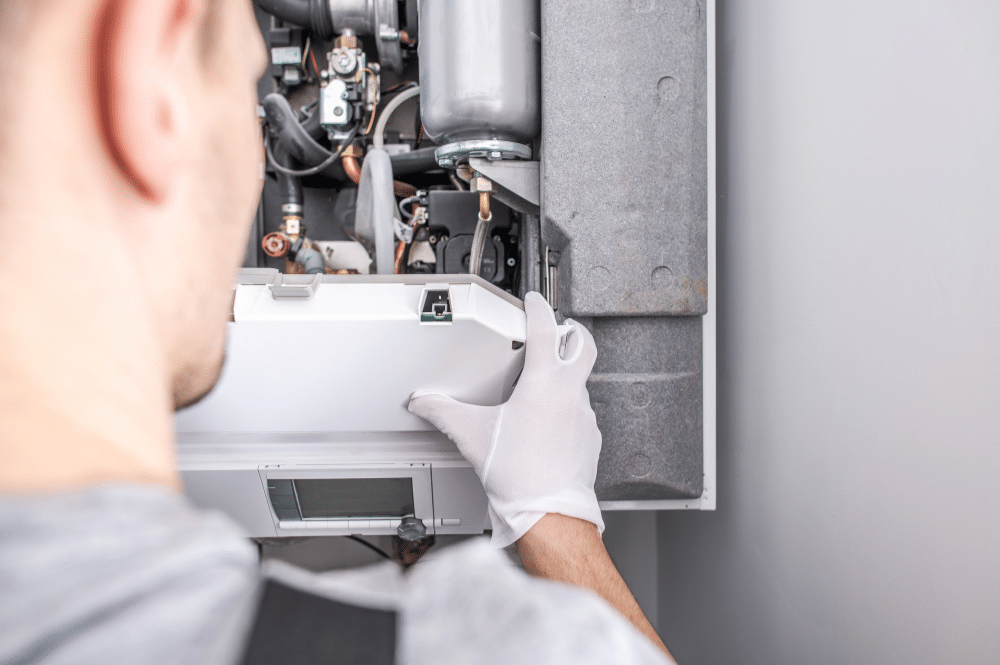Compared to air conditioners made in the 1970s, today’s air conditioners use around 30% to 50% less energy. They still produce the same cooling power, but modern and energy-efficient technology helps save on energy costs and emit less of an impact on the environment.
If your heating and cooling system is more than 10 years old, it can be more cost-effective to replace it with a new one or replace one of its parts.
Condenser units provide temperature control in air conditioners, refrigerators, chillers, and heat pumps. They compress a gas called a “refrigerant” and then pump it through a coils system.
If a condenser unit can no longer do its job effectively, it might be time to replace it. Keep reading to learn all about when it’s time to repair or replace a condenser unit.
Signs and Causes of a Malfunctioning Condenser Unit
Condenser units take the AC’s gas and convert it into a liquid by cooling it down. The liquid is the refrigerant required for your air conditioning system to function efficiently.
If it malfunctions, your entire system will malfunction, and you’ll need air conditioning repair. The longer you ignore it, the more likely it is that the issue will become an expensive replacement.
Warning Signs You Need HVAC Repair
There are some common signs to watch out for as indicators that you have a bad AC condenser.
Loud and strange noises coming from your unit are the most common indicators that something is wrong. Suppose you notice that your unit’s cooling capability has reduced significantly. In that case, it’s probably time to have your unit looked at before your energy bills go through the roof or your air conditioning system fails.
Some condensation is normal. However, if you notice that your unit has started to leak a noticeable amount of fluid, there’s an issue.
Causes of an AC Condenser Malfunction
There are different causes of a condenser malfunction, many of which can be repaired. A blockage or leak, for example, can occur for several reasons. Sometimes faulty seals or tubes can cause leaks.
Leaks can occur over time, too, especially if there is a rupture or puncture. Sometimes external debris gets in, or metal particles flake off of the condenser. Typically, blockage occurs as a result of poor maintenance or the HVAC unit’s age.
Dirty components can affect your condenser unit. For example, elements like grass, dirt, and twigs can get into your unit and dirty its parts. It’s important to clean around your AC unit to avoid this happening.
The control board is the center of communication for your condenser. If it’s bad, the system can’t function. A faulty control board can cause the condenser to lose functionality.
Over time, a motor can burn out. This is caused by either poor maintenance or stress on the unit. It’s important to clean around your unit and maintain it regularly.
The longer any blockage exists, the more likely it is that it’ll damage other components of your air conditioning system. When you notice any signs of irregular function, call a technician to give your AC unit an inspection.
When to Repair or Replace Your Unit
Sometimes, it can be difficult to determine whether it’s in your best interest to repair or replace your HVAC unit. Take a look at these common issues that warrant either a repair or a replacement.
When to Repair
More often than not, if it’s a bad run capacitor, a faulty control board, a burnt motor, or a dirty condenser, you can go ahead and have your condenser unit repaired.
A dirty condenser typically needs a thorough cleaning and then can be back up and running in no time. A bad condenser relay switch is easy to switch out for a new one, as is a bad run capacitor.
Faulty motors can be replaced too, but it’s important to check the manual for the correct replacement. If you replace the motor with one not suited to your HVAC system, you run the risk of further damage to your unit.
Dirty coils can cause issues but are simple fixes to improve your condenser unit’s capabilities.
When to Replace
Replacing a damaged coil can take a lot of labor and time, which means it’s expensive. Unless your unit’s coil is still under warranty, it might make more sense financially to replace your entire unit.
Blockages typically indicate a significant issue within your condenser unit. Depending on the damage done, you might have to replace more than just your condenser.
It’s not possible to replace condenser tubes or seals. If those seals or tubes have any excessive leaks, you’ll have to replace the entire condenser unit.
When there are leaks, blockages, or the system is old, sometimes it can be more cost-effective to replace your unit. Every few years, HVAC manufacturers make advancements that increase energy efficiency and cost.
Even if your unit is repairable, check with your technician to determine whether or not it could be more cost-effective to replace your unit anyway.
Take Care of Condenser Units to Extend Their Life
One of the best things homeowners can do for their pockets and condenser units is to care for any of their HVAC systems by performing regular maintenance and check-ups.
Often, minor issues such as debris, faulty switches, or a burnt motor can be quickly dealt with at a much lower cost than replacing an entire unit. However, the longer you wait to address any issue, the bigger the risk of that issue leading to more extensive and expensive damage.
If you’re worried, you might have an issue with your unit, or you’d like to schedule a routine maintenance check, contact us to set up an appointment or with any questions or concerns!




